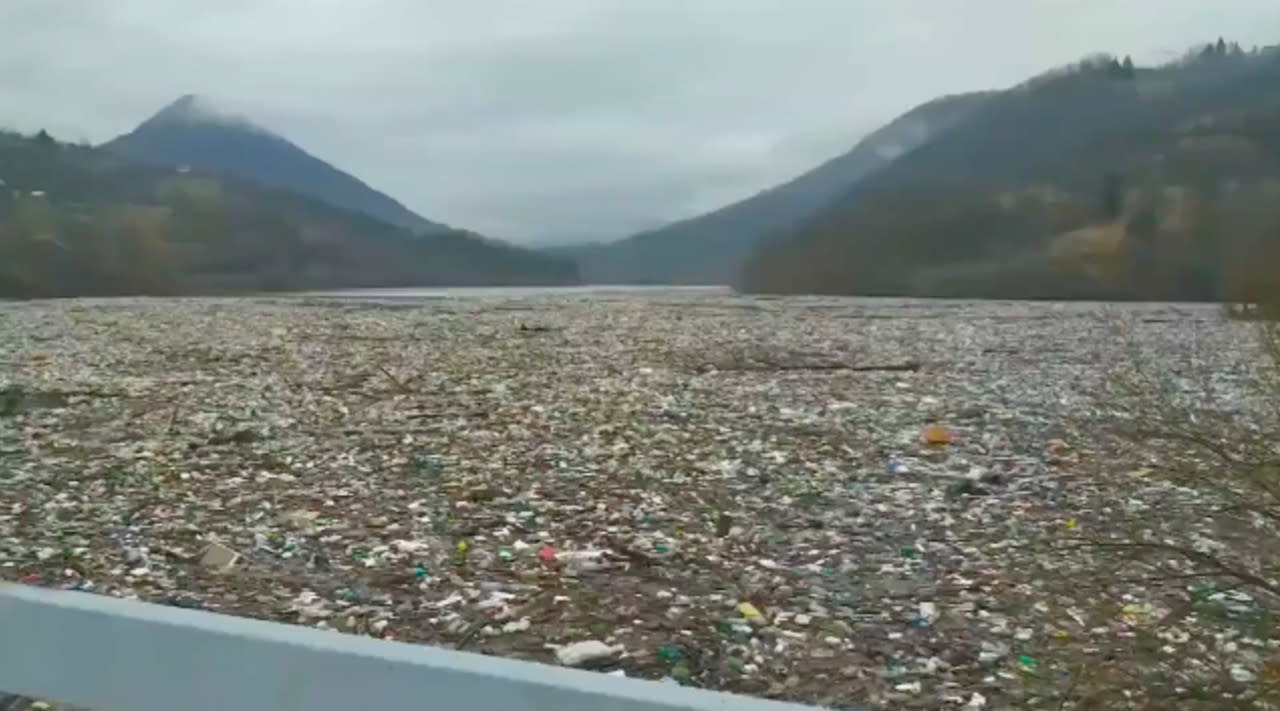
Although pollution is an ubiquitous problem that is affecting essentially all of the Earth’s ecosystems, the problem is not always visible to the naked eye. However, images from Serbia’s Lake Potpecko show a shocking scene – several thousand cubic meters of plastic containers floating on the water’s surface.
The footage was first published online on January 4, 2021 and environmental activist Sinisa Lakovic says the extent of plastic pollution is due to decades of garbage accumulation in “landfills”, as reported by Reuters. Marko Karadzic, a local resident, described the situation to Reuters as “an ecological disaster”.
Several landfills are located upstream of the lake along the Lim River. Lake Potpecko is connected to the body of water that the Višegrad Hydroelectric Dam uses, and authorities are concerned that it may become clogged with garbage.
Serbian Environment Minister Irena Vujovic said a cleanup would start soon and said that several landfills that contributed to pollution in Lake Potpecko were invited to develop a solution that would have long-term benefits.
WATER POLLUTION, NOT JUST AN OCEAN PROBLEM
Images of marine animals entangled in plastic pollution are the most common impacts that many people think of when considering how the waste we generate affects aquatic ecosystems. Given that the oceans cover more than 70% of the Earth’s surface, it is understandable that the spotlight focuses on these marine ecosystems, but some experts say that plastic pollution in freshwater lakes and rivers is a topic often overlooked in research.

A discarded beer can in Eagle Lake, Mississippi, USA. Credit: Justin Wilkens via Unsplash
A 2019 survey conducted by scientists Martín CM Blettler and Karl M. Wantzen reviewed 171 published studies that analyzed the plastic entanglement of animals and found that more than 98% concentrated exclusively in ocean environments. Blettler and Wantzen said that although ocean plastic pollution remains a considerable concern, they emphasize the importance of the limited knowledge we have about freshwater pollution.
In freshwater environments, the researchers documented an increasing tendency for plastic to become part of bird nests, which can reduce the survival rates of parents and young. Microplastics are also being consumed by fish in increasing amounts, leading to adverse effects. The researchers say the effects of plastic pollution on inland water bodies are important to study because the waste that is dumped into lakes and rivers ends up going into the oceans.
With Reuters files
